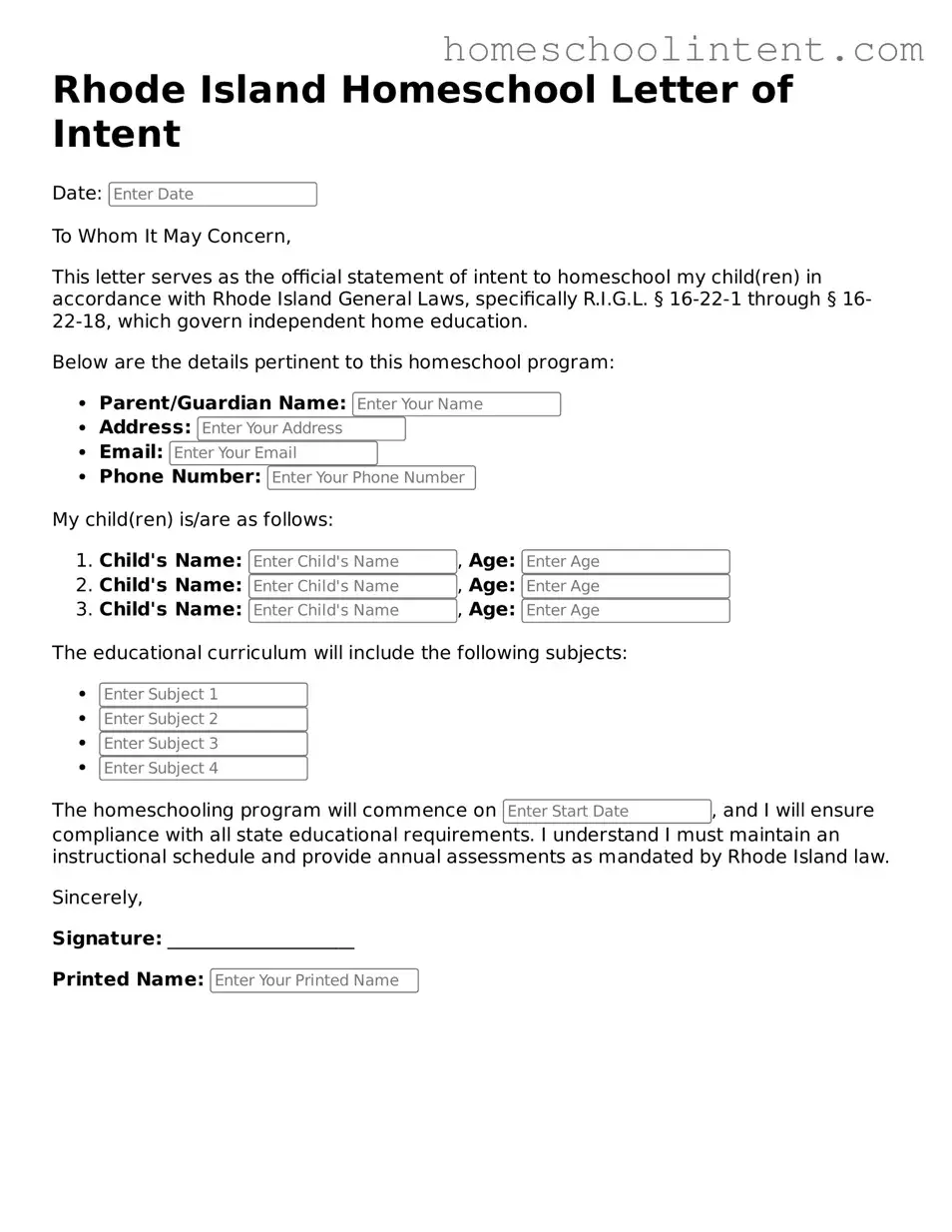Documents used along the form
When parents choose to homeschool their children in Rhode Island, they must complete the Homeschool Letter of Intent form. This form serves as a notification to the local school district of the intent to educate a child at home. In addition to this essential document, several other forms and documents may be required or recommended to ensure a smooth homeschooling experience. Below is a list of these important documents.
- Educational Plan: This document outlines the curriculum and educational goals for the student. It should detail the subjects to be taught and the methods of instruction planned for the school year.
- Attendance Records: Keeping track of attendance is vital. Parents should maintain a log of days the student is engaged in educational activities, as this may be requested by the school district.
- Progress Reports: Regular assessments of the student's progress can help identify areas of strength and those needing improvement. These reports can be shared with the local school district if required.
- Sample Work Portfolio: A collection of the student’s work samples can demonstrate learning and progress over time. This portfolio may include assignments, projects, and assessments.
- Standardized Test Results: While not mandatory, some families choose to administer standardized tests to evaluate educational outcomes. Results may be submitted to the school district upon request.
- Curriculum Materials: Documentation of the educational resources and materials being used can provide insight into the educational approach. This may include textbooks, online resources, and other learning aids.
- Extracurricular Activity Records: Participation in extracurricular activities can enrich a homeschool experience. Keeping records of involvement in sports, clubs, or community service may be beneficial.
- Withdrawal Form from Public School: If the child was previously enrolled in a public school, a formal withdrawal may be necessary. This document ensures the school is aware of the child's transition to homeschooling.
In summary, while the Rhode Island Homeschool Letter of Intent form is a critical starting point for homeschooling, these additional documents can support the educational process and fulfill any requirements set by the local school district. Maintaining organized records can facilitate communication and ensure compliance with state regulations.
